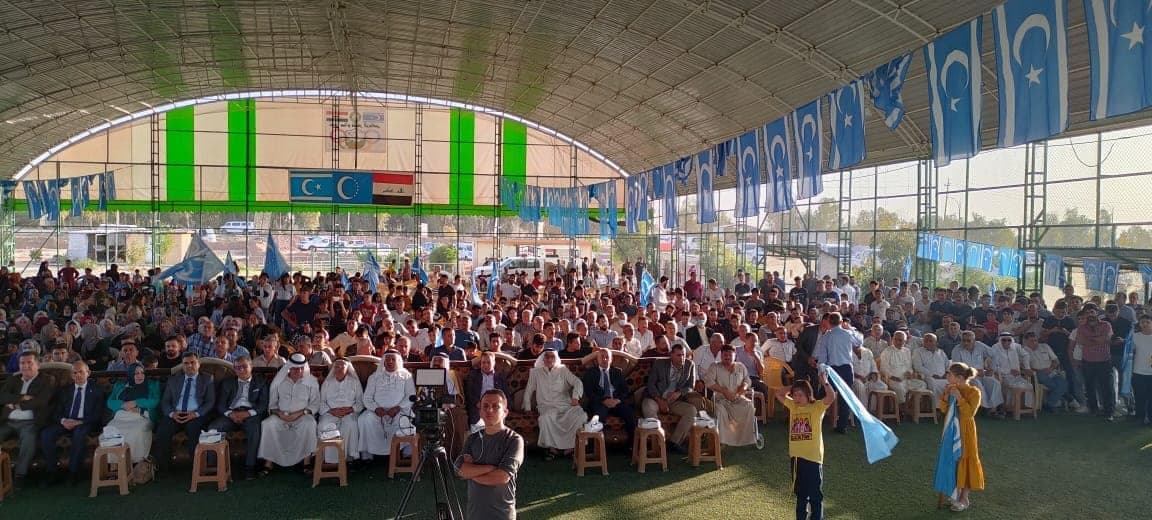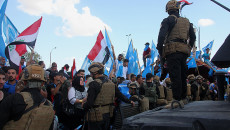"In every session they share power and there is no representative of the Turkmen in it, and I fear that the scenario will be repeated this time as well," this is how Amjad Hamid, a Turkmen citizen from Tal Afar district, expresses his fears.
From these concerns stem the demands of the people of the majority-Turkmen district, for fairness in the next government formation, after previous governments were devoid of a representative for them, except in one session, despite the fact that the Turkmen component, are the third ethnicity after the Arabs and the Kurds, making 9% of the total population of Iraq.
In the second government of Nuri al-Maliki 2010-2014, Izz al-Din al-Dawla (from Tal Afar) took over the Ministry of Agriculture, while successive governments were devoid of personalities from talafar.
Hamid, a young man in the third decade of life, believes "the Turkmen have made great sacrifices over time, the last of which was in the war against Daesh (the Islamic State in Iraq and Levant ISIL) and they contributed to building Iraq, and it is fair that they have a role in the next government."
The district of Tal Afar has been for nearly three years under the control of ISIL, which killed dozens of its people while the fate of 1,300 of them is still unknown after that it has kidnapped them from the first hours of its control, including Children and women.
Tal Afar, which has a population of about 450,000 people, is distributed over the city center and three sub-districts, northwest of Mosul. Majority of its residents are of Turkmen ethnicity, while some Arabs and Kurds reside some areas and villages.
Daesh committed atrocities in June 2014 when they controlled the town of Talafar. 1300 people were abducted: 700 men, 470 women and 130 children, among them 400-500 in ISIL controlled prisons in Syria, a statement by Turkmen civil society NGOs said last year.
We have figures qualified to run the government, so our demands did not come for racism or quotas
The parliamentary elections that took place in October of last year witnessed a weak voter turnout, as the turnout was the lowest over the previous sessions and since the 2005 elections.
The Sairoon, Walking Forward, Alliance by Sadrist movement led by Shiite cleric Muqtada al-Sadir, obtained the largest number of seats in Parliament. Pro-Iran Shiite parties, the Coordinative Frame questioned the election results to the Supreme Federal Court, but lost their appeals.
It is expected that the parliament will decide who is the largest bloc and the effect of which the new president will ask them to form a government. While Turkmen won seven seats in the new parliament.
“Demanding a representative of the Turkmen in the next government is not a matter of racism and quotas, but rather to emphasize that they are a basic segment of Iraqi society, and that there are qualified figures who can contribute to running the country and advancing its reality,” says Yassin Abdul Karim, a retired teacher.
"The Turkmen regions have been subjected to great destruction as a result of the control of Daesh and the subsequent military operations, and they are in dire need of someone to convey the voice of their residents to the government in order to rebuild it and return the displaced who are still scattered across and outside Iraq," Abdul Karim added.
Ninewa, October 2021: Resident of Tal Afar protest results of October General Elections. Jaafar Al-Talafari
Turkmen are considered the third largest ethnic group in Iraq after Arabs and Kurds, residing almost exclusively in the northern towns and villages stretching from Tal Afar through Mosul, Erbil, Altun Kopri, Kirkuk, Tuz Khurmatu, Kifri and Khanaqin. They are half Sunnis and half Shiite.
The Turkmens insist in order to restore safety, security and reconstruction to their war-devastated region, local can better represent them.
"This is perhaps an early call for political leaders not to deprive the Turkmen of taking over ministries and senior administrative positions, like other components of the Iraqi people. Everyone has the right to participate in this responsibility, lest any component feel disadvantaged and marginalized," according to Yasser Adnan, 37-years-old resident of Tal Afar.
"Although we blame others for marginalizing us as Turkmens, the Turkmen politicians themselves bear part of that marginalization, where disagreements, conflicts and dispersal into sectarian and partisan lists deprived us of our rights, and perhaps the time has come to unite and be one hand to demand the right of the Turkmen people,” Adnan thinks.
October 10t, 2021 General Elections witnessed the election of one female representative from Tal Afar Center, Zulekha Bakkar through the quota system, while the other three sub-districts won the other three seats.






